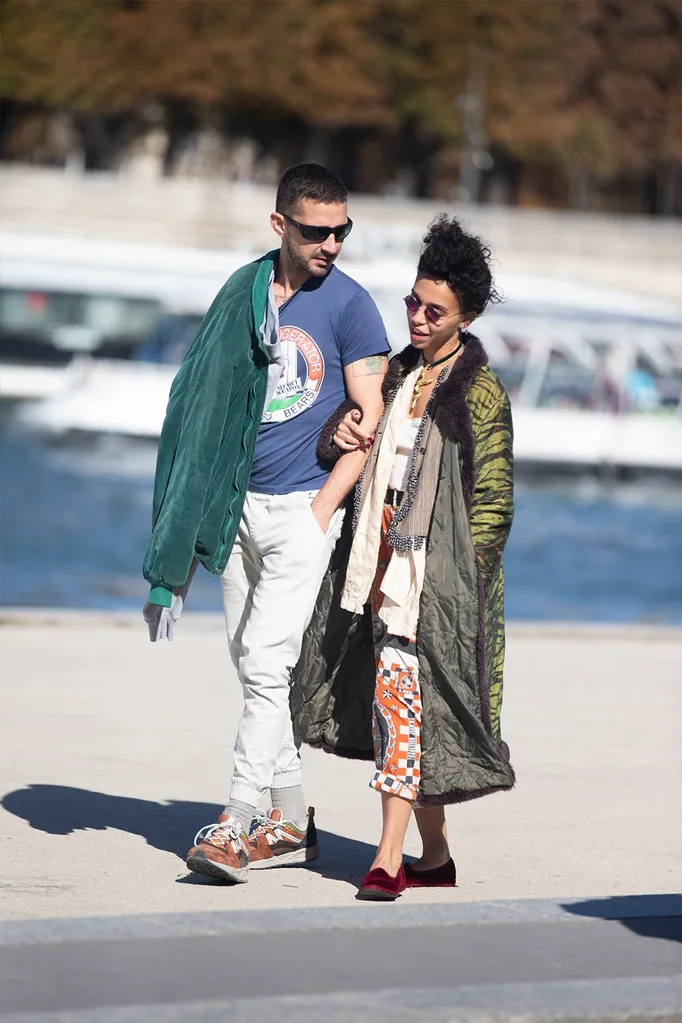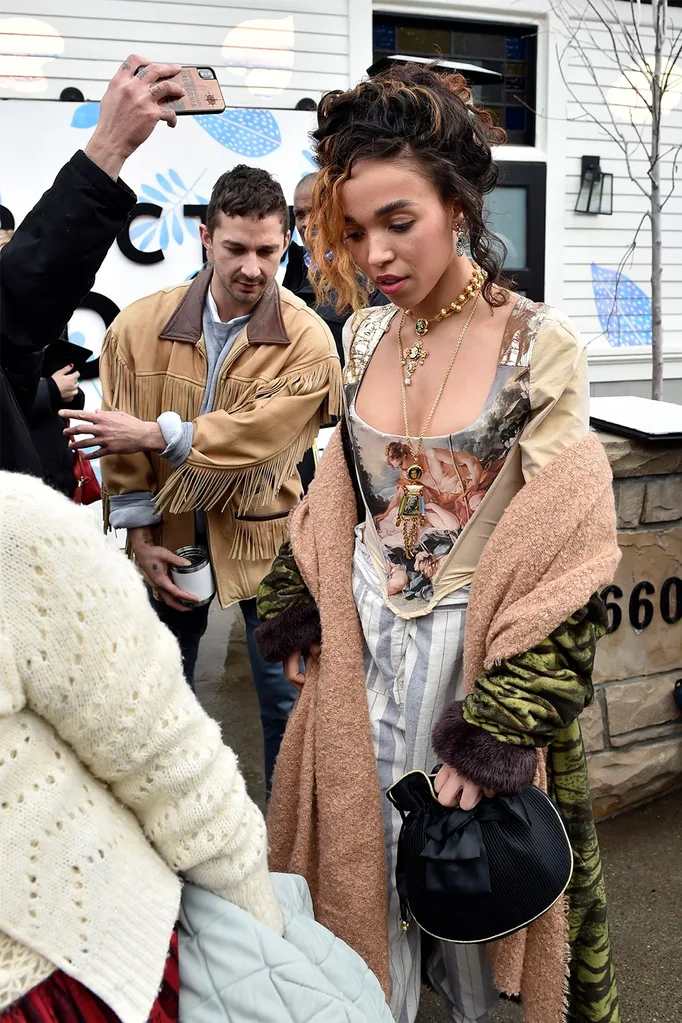Trigger warning: This article contains references to domestic violence and may be distressing for some readers.
Musician FKA Twigs, real name Tahliah Barnett, has opened up about her alleged abusive relationship with Shia LaBeouf in a new interview.
Back in December 2020, Barnett chose to sue the 34-year-old actor for alleged emotional, physical and mental abuse during their year-long relationship.
Now, Barnett is detailing the heinous and abhorrent violence allegedly used against her during that time. Appearing on journalist Louis Theroux’s podcast Grounded, she detailed the abusive moments she experienced in the relationship and how she has suffered from panic attacks and PTSD since.
Having met on the set of LaBeouf’s 2019 film Honey Boy, Barnett explained how the pair went through an “intense honeymoon period”, saying that the beginning of their relationship was “a signifier of how brilliant things can be. It sets the benchmark for if you behave well.”
The “Two Weeks” singer added, “If you fulfil all the requirements and meet the rules, and all these things of the abuser, it can… be great,” she said, before adding he began testing her “emotional and spiritual boundaries.”
However, Barnett recalled the “low moment” that ultimately led to her seeking help. During a road trip in the desert, LaBeouf allegedly strangled her at a gas station. And once she realised that “nobody did anything”, the gravity of the situation hit her hard.
She went on to explain how calling a domestic violence helpline was a “massive wake-up call” that made her realise the seriousness of her situation. After taking that initial step, the singer reached out to friends and began seeing a therapist twice a week until a few months later, she began the process “to leave and leave for good.”.
Recalling the many toxic moments from the relationship, Barnett revealed how she gradually became aware of his “jealous and controlling” behaviour, noticing the “little things you could do wrong that could take away from the happiness”.
“Being nice to a waiter, or being polite to somebody, that could be seen as me flirting or wanting to engage in some sort of relationship with somebody else, when I’m literally just ordering pasta…”
She continued: “I was told that I knew what he was like and if I loved him, I wouldn’t look men in the eye. That was my reality for a good four months.”

Barnett also revealed that he would apparently count how many times she would kiss him in one day, leaving her unsure of “what the right number was.” And if she didn’t meet his quota, “he would start an argument with me, berate me for hours, make me feel like the worst person ever,” and would call her a “terrible girlfriend.”
According to Barnett, LaBeouf would tell her that his previous partner “met his number very well and I was inadequate… it was 20 touches, 20 kisses a day, reinforcements of my devotion for him and me being committed to him, which is exhausting because you can’t be natural.”
At the time, Barnett thought leaving him was “genuinely impossible”, saying that she felt “so controlled and I felt so confused and I felt so low, beneath myself, that the fear of leaving and knowing I had all this work to do to get back to just feeling okay, it was completely overwhelming.”
And while the pair have since split, the aftermath of the alleged abuse she suffered has cause Barnett to develop trauma-induced panic attacks and post-traumatic stress disorder.
“For a long time anything that woke me up in the night, even if it was just my dog, or a noise outside, or just needing to go to the bathroom, it could trigger a really intense panic attack.”
“I was left with PTSD [post-traumatic stress disorder] from that, which again is just something that I don’t think we really talk about as a society just in terms of the healing when leaving, and how much work that has to be done to recover, to get back to the person that you were before.”

And while Barnett continues to work through the trauma from the relationship, she also stressed that healing publicly has helped her to feel courageous.
“All I can do is just think about myself when I’m 50 years old [and] I’ve got kids, I think about what I want to have stood for,” she shared.
“This is something that was completely unexpected. I never thought anything like this would happen to me… when I’m older, if I have a daughter, I want to be able to say, ‘This thing happened to me. And I dealt with it.’ It’s a big thing to heal publicly and have to do it in front of everyone, but I can do it. I’m a big girl and I can do it.”
If you or anyone you know needs help or advice, contact 1800 RESPECT on 1800 737 732 or Lifeline on 13 11 14.










